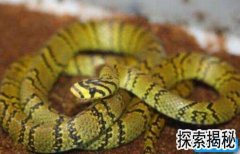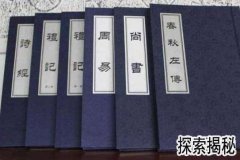仁爱英语九年级上知识点及短语(4)单元
仁爱英语九年级上知识点及短语Unit 4
Topic 1
1.dream of 梦想
Eg:I dream of studying in a university.
2.send 寄,送
Eg:I will send a gift to my mother on her birthday.
=I will send my mother a gift on her birthday.
相关的短语:~ for 派人去请 ~off 送行 ~ out发出(光、热);长(叶子) ~ up 发射
3.no doubt 毫无疑问
Eg : There is no doubt he is a kind man.
4. thanks to 多亏
eg : Thanks to the bad weather we don’t have to do morning exercise.
5.turn on 打开 turn off 关掉 turn up 调高 turn down 调低
Topic 2
1. Because I’m not allowed to play computer games.因为我不可以玩电脑游戏。
allow “允许、准许”的意思。常用于以下几种形式:
(1) allow +n./prep 如:
We can’t allow such a thing.我们不容许这种事情发生。
(2) allow sb. to do sth 允许某人做某事 如:
She allowed me to go fishing.她允许我去钓鱼。
(3) allow +doing sth 允许做某事 如:
We don’t allow smoking in the reading-room.我们不允许在阅览室吸烟。
(4) be allowed to do sth 如:被允许做某事
The students are allowed to play games on the play ground after school.放学后学生们被准许在操场上做游戏。
2.It’s made from wood.它用木材做的。
(1) be made in 在……地方制造,后接表示地点的名词。
(2) be made of 用……制造的,表示原材料未经化学变化,仍可看得出原材料。
(3) be made from 用……制造的,表示原材料经过化学变化,已看不出其原样。
(4) be made by 由(被)……(人)制作,后接表示人的名词或代词。
(5) be made into (某物)被制成……
(6) be made up of 由……组成 如:
The TV set is made in Japan.这台电视机是日本生产的。
These houses are made of stones.这些房子是由石头建造的。
Paper is made from wood.纸是木头造的。
Was this cake made by your mother?这蛋糕是你妈妈做的吗?
Metal can be made into all kinds of things.金属可以制成各种各样的物品。
The medical team is made up of ten doctors.这支医疗队由10位大夫组成。
4. It’s used for helping us to improve our English.它用来帮助我们提高英语水平。
(1) be used for+ving be used to do (被)用来做… 强调用途或作用
(2)be used as (被)作为……而用,强调被当作工具或手段来用。
(3)be used by 被……使用,by后跟人/物,强调使用者。
Eg:Pens are used for writing.钢笔被用来写字。
Wood is used to make paper.木材被用来造纸。
English is used as a foreign language in China.英语在中国被当作外语使用。
Recorders are often used by English teachers.英语老师经常使用录音机。
5. They will no longer want to be our servants, but our masters.
它们将不再愿意做我们的人,而要做我们的主人。
no longer(通常在动词前),not…any longer; not…any more(用于非正式文体中)都可表示“(过去曾…)现在不再…”
eg: She no longer lives here.
=She doesn’t live here any longer(或 any more). 她不在这儿住了。(过去她曾住这儿)
7. This method worked well at night as long as the weather was good and the stars could be seen.
在夜间只要天气晴朗,能看见星星,这种方法就能很好地发挥作用。
work well 有效 eg:China’s one-child police works well in controlling China’s population.
as long as 只要 eg :As long as you work hard ,you must succeed one day.
Topic 3
1.in the future 将来
Eg:I think people will live on Mars in the future.
2.What are you going to be when you grow up?你长大后干什么?
3.at a distance of 以…距离
Eg:The moon goes around the earth at a distance of 38.0000 kilometers .
4. land on 着陆
Eg: People took some measures to make the plane land on safely.
5.be worth doing 值得…
Eg:The book is worth reading
6.I don’t think aliens can be found in space.我认为外星人不可能出现在太空里。
(1)当think, believe, suppose, imagine, expect等动词后的宾语从句含有not的否定词时,该否定应移至主句,即否定主句的谓语动词。如:
I don’t think it will rain tomorrow.我认为明天不会下雨。
(2)can +be +过去分词,是情态动词构成的被动语态。如:
This can’t be done in a short time.
这不是短期内能完成的。
7. It has been two days since we landed on Mars.自从我们登上火星以来已经两天了。
it用作主语谈论时间,常与since连用。
eg:It is(或has been) three years since we left school. 自从我们离开学校以来已经三年了。
8. What’s worse, our water supplies were very low. 更糟糕的是,我们的水供给是非常有限的。
What’s worse 更糟糕的是。类似结构还有:What’s more 更有甚者;更为重要的是。
9. It’s a quarter as big as the earth.它是地球的四分之一大。
倍数表示法:倍数+as+形容词/副词+as
如:This box is three times as heavy as that one.这只箱子是那只箱子的三倍重。
仁爱版英语九年级上册知识点
有知识不等于有智慧,知识积存得再多,若没有智慧加以应用,知识就失去了价值。了解你自己在做什么事,知道热爱做什么样的事,下面我给大家分享一些仁爱版英语九年级上册知识,希望能够帮助大家,欢迎阅读! 仁爱版英语九年级上册知识1 I. 重点词组 1. not only…but also… 不仅……而且…… 2. be supposed to 应该 3. ought to 应该 4. turn off 关掉 5. instead of 代替 6. on time 准时 7. make sure 确保 8. push forward向前推 9. push down 向下 10.pull up 向上拉 II. 重点句型 1. For example, we should use both sides of paper and reuse plastic bags. 例如,我们应该用纸的两面,并且重新使用塑料袋。 2. Everyone is supposed to do that.每个人都有义务那样做. 3. First, you ought to turn off the lights when you leave a room.首先, 你离开房间时应该随手关灯。 4. Easier said than done. 说起来容易做起来难。 5. Well, actions speak louder than words.嗯, 百说不如一做。 6. There will be a lot of hard work to do tomorrow, so make sure you go to bed early tonight. 明天有许多繁重的活要干,今晚一定要早睡。 III. 语法 并列句:由两个或两个以上并列而又相互独立的简单句构成。 结构为:简单句+并列连词+简单句 常用的并列连词有:and, or, but, while, not only… but also e.g. 1. The river is dirty and the temperature of the earth is rising. 2. They work well, but they are slow and can’t run for long. 仁爱版英语九年级上册知识2 I. 重点词组 1. as a result 结果 2. here and there 到处 3. in the beginning 一开始 4. in danger 处于危险中 5. cut down 砍倒 6. change sth. into sth. 把……变成…… 7. prevent from 防止 8. greenhouse effect 温室效应 9. refer to 提到 10.deal with 处理 12.cut off 中断 II. 重点句型 1. As we know, none of us likes pollution.众所周知,没有人喜欢污染。 2. Humans have come to realize the important of protecting animals.人类逐渐意识到保护动物的重要性。 3. Trees can also stop the wind blowing the earth away.树木也能防风固土。 4. Cutting down trees is harmful to human beings, animals and plants.砍伐树木对人类、动植物都有害。 5. Some things we’ve done are very good for earth while some are not good. 我们所做的, 有些对地球很好,而有些不利。 6. They can also prevent the water from washing the earth away.它们也能阻止水土流失。 7. When it rains or when the wind blows, the earth is taken away.天一下雨或刮风, 土就会被冲走或刮走。 III. 语法 不定代词: 1. 定义: 指的是那些不指明代替任何特定名词或形容词的代词。 2. 用法: 在句中可作主语、宾语、表语、定语等。something , somebody, anything, anybody等作主语时,通常视为单数。当形容词修饰它们时,要放在其后。 e.g. But the government has done something useful to protect the environment. 仁爱版英语九年级上册知识3 I. 重点词组 1. chemical factory 化工厂 2. pour… into… 把……排放到…… 3. in a bad mood 处在不好的情绪中 4. manage to do sth. 设法去做某事 5. do harm to … / be harmful to… 对……有害 6. quite a few 相当多 7. no better than 同…….一样差 8. in pubic 公开地 9. all sorts of 各种各样的 10.in many ways 在许多方面 II. 重点句型 1. Look, there are several chemical factories pouring waste water into the streams. 看, 有几家化工厂正往河里排放废水. 2. Everything has changed.一切已发生了变化. 3. How long have you been like this? 你像这样多长时间了? 4. I’m always in a bad mood because I can’t stand the environment here. 我的情绪总是很差因为我受不了这里的环境. 5. However, not all people know that noise is also a kind of pollution and is harmful to humans’ health. 然而,并非所有的人都知道噪音也是一种污染, 而且有害于人类健康. III. 语法 直接引语和间接引语 1. Granny said, “I’m feeling even worse.” Granny said that she was feeling even worse. 2. “ Do you still want to live here, Granny?” the journalist asked. The journalist asked Granny if she still wanted to live there. 3. “ How is the environment around this place?” the journalist asked. The journalist asked how the environment around that place was. 仁爱版英语九年级上册知识4 I. 重点词组 1. get lost 迷路 2. each other 彼此 3.at least 至少 4take place发生 5because of 因为 6.be strict with sb. 对某人严格要求 7.carry out 实行 8.be short of 缺乏 9.take measures to do sth.采取 措施 做某事 10.be known as… 作为……而著名 11.work well in doing…在……方面起作用 12.a couple of 一些 13keep up with赶上,跟上 II.重点句型 1. Have you found him yet? 你已经找到他了吗? 2. ——I really hate to go shopping. 我的确讨厌购物。——So do I.我也如此。 3. But it seems that their living conditions were not very good.但是似乎他们的生活条件不太好。 4. But great changes have already taken place in China recently.但是近来中国已发生了巨大的变化。 5. Because of the one-child policy, now most families have only one child. 由于我国独生子女政策的实行,现在大部分家庭只有一个孩子。 6. What’s the population of the U.S.A.?美国的人口是多少? 7. ——What’s more, the population in developing countries is growing faster. ——So it is. 而且,发展中国家的人口在更快地发展。 的确如此。 8. Our government has taken many measures to control the population. 我们的政府已采取了许多控制人口的措施。 III.语法: 常用于现在完成时的时间状语:already, just , yet, ever, never, recently. e.g. 1. I have just called you. 2. ——Have you ever been to France? ——No, I’ve never been to any European countries. 3. ——Have you seen him yet? ——Yes, I have seen him already. 仁爱版英语九年级上册知识5 I. 重点词组 1.learn…from…向……学习 2.in order to为了 3.give support to… 为……提供帮助 4.see sth. oneself 亲眼所见某物 5.keep in touch with 与……保持联系 6.sorts of各种各样的 7.make progress 取得进步 8.thanks to 由于 II.重点句型 1. Where have you been, Jane? 你去过哪里,简? 2. She has gone to Cuba to be a volunteer.她去古巴当志愿者了。 3. There goes the bell. 铃响了。 4. Though I had no time to travel, I still felt very happy.虽然我没有时间去旅行,但是我仍然感到很开心。 5. Now our country has developed rapidly.现在我们国家发展迅速。 III.语法 1. 现在完成时态的构成:助动词have/has+动词的过去分词 e.g. You have just come back from your hometown. 2. 现在完成时态的句式: e.g. (1) I have been to Mount Huang with my parents. (2) I haven’t seen him for a long time. (3) Where have you been? (4) ——Have you ever cleaned a room? ——Yes, I have. / No, I haven’t. 3. have/ has been与 have/has gone 的区别 have/has been to sp.表示曾经到过某地—— have/has gone to sp.表示已经去了某地 e.g. (1) I have been to Mount Huang with my parents. (2) She has gone to Cuba to be a volunteer. 仁爱版英语九年级上册知识点相关 文章 : ★ 仁爱版英语七年上册知识点 ★ 仁爱英语九年级作文2篇 ★ 仁爱版七年级上册英语教材复习提纲 ★ 2019九年级英语教师教学工作计划 ★ 初中英语短语仁爱版 ★ 仁爱英语八年级上册Unit1—Unit3知识点归纳 ★ 仁爱版英语七年级上册单词表 ★ 仁爱八年级英语上册课文翻译 ★ 仁爱英语七年级上册同步练习册答案 ★ 仁爱版七年级上册英语Unit1测试试卷及答案
九年级上册英语知识点外研版【三篇】
#初三# 导语: 要想学好英语,就必须学好英语知识点,下是 整理的九年级上册英语知识点外研版【三篇】,希望对大家有帮助。 英语上册知识点:句式句型 1. They go as fast as they can. as…as sb. (one) can = as …as possible 尽可能地…… as…as中间加原级的形容词或副词。例: I will work as hard as I can. 我将尽可能努力工作。 He ran as fast as he could. 他拼命地跑。 Please come here as soon as you can. 请尽快来这里。 2. We call the first Olympic Games the "ancient" Olympics. 我们把早期的运动会叫做"古代"奥运会。 call sb. / sth. +n. 称呼某人/某物……,后面的名词作宾语补足语。 例:We call the boy DaMao. 我们称呼那个男孩大毛。 类似于这种可以用名词或名词短语作宾语补足语的动词有: name/call/make/choose/find/think等。例: We chose him our monitor at yesterday's class meeting. 昨天班会我们选他当我们的班长。 I find him a clever boy. 我觉得他是个聪明的孩子。 3. It seemed that Zhuang Yong and Jenny Thompson, an American swimmer, had finished at the same time. 看上去好像庄泳和美国游泳选手詹尼•汤姆森同时游完全程。 以下几种方式可以表示"看起来……,似乎……" It seems that +从句 seem to be +adj. seem +adj. 例:Danny seemed excited. (Danny seemed to be excited.) 丹尼似乎很激动。 seem to do sth. 例:When his wife's pet cat died, Alan didn't seem to care at all. 艾伦妻子的宠猫死了,他好象一点也不在乎。 4. Diving is one of the most popular events at the Olympics. 潜水是奥运会欢迎的项目之一。 one of… ……其中之一,后常加级及名词复数。例: Changjiang is one of the longest rivers in the world. 长江是世界最长的河流之一。 5. Make your country proud. 使你的国家因你而自豪。 proud作宾语补足语,修饰宾语your country; make的用法: make the bed 铺床 make tea 沏茶 make dumplings 包饺子 make a car 制造汽车 be made of 由……制成 make sb. /sth. +n. 使某人/某物成为…… made sb. /sth. +adj. 使某人/某物如何…… make sb. /sth. do 使某人/某物做某事 名词/形容词/do (不定式,省to),作宾语补足语。 6. …his team came in twentieth. 他的队第二十名。 twentieth 第二十 整十数的序数词,变y为ie加th。例: ninety→ninetieth fifty→fiftieth 7. We had such an interesting day at school today. 我们今天在学校度过了这么有趣的一天。 这句话也可以说成:We had so interesting a day at school today. such和so意思都是"如此……/这样……",但用法不同。 It is so interesting a film that we all want to see it once more. 它是如此有趣的电影,我们都想再看一遍。 Thanks a lot for sending me such beautiful pictures by e-mail! 多谢你用e-mail给我发来这么漂亮的图片。 He is so weak that he can't work on. 他如此虚弱以致不能再继续工作。 8. If I don't. I won't be able to sleep tonight. 如果我不写下来的话,我今晚睡不着觉。 此句是if构成的条件状语从句,要用一般现在时代替将来时。 I'll go to the park with my friends if it doesn't rain tomorrow. 如果明天不下雨,我要和朋友去公园。 9. If he practises walking on pizzas, he'll do better next time. 如果他保持练习在比萨饼上走的话,下次他会表现好一些。 finish, enjoy, practise, keep, mind后常加动名词作宾语。例: You'd better practise speaking English both in and after class. 你在课上课下练习说英语。 英语上册知识点:复数名词的误用 英语名词分可数的和不可数两种。可数名词指一般动物和事物,如“Man/ friend/ driver/ student/ dog/ cat/ boat/ egg/ gun/ hand/ head/ lamp/ road/ table/ car ”等等。 可数名词有两个数,即单数和复数。单数名词可以和不定冠词“ a/ an”或其他名词限定词(determiners)连用;复数名词可以和数目词,如“many/ a few/ some/ a lot of”等连用。 不可数名词指物质名词(material nouns)和抽象名词( abstract nouns),如:“air/ butter/ grass/ money/ sand/ water/ carefulness/ joy/ peace”等等。不可数名词可以和数量词,如“much/ a little/ little/ a great amount of”等连用。不可数名词只有单数,没有复数“-s”的形式。 有些人对名词数的概念不很清楚,对数目词(expressions of number)和数量词(expressions of quantity)也有些混乱,结果把数目词用在不可数名词之前或随意在不可数名词后面加上复数词尾 “-s”,这些都是语法上的错误。例如: ① Our workshop has ordered some new equipments from Germany. 虽然有些人把 equipment(配备)当成可数名词,但是它是不可数的,不可有“-s”。 ② My teacher gave me some sound advices. 应该是“advice”。 ③ Do you have any special informations for me? “Information”才对。 ④ Most furnitures in my house are made of wood. 应该是“furniture……is……” ⑤ Today, I have many new works to do. 必须是“a lot of new work”才是。 ⑥ Don't walk on the grasses. 应该用“grass”。 ⑦ Our foreign students have made great progresses in their studies. “Progress”(进步)不可数;不可有“-es”。 ⑧ All his money are kept in the bank. “Money”(金钱)属不可数名词;动词要单数的“is”。 上述这类有关不可数名词的错误,极为普遍;只要看看学生的作文,便知道了。 既然如此,要怎样避免这种错误呢? 首先,必须牢记不可数名词绝对没有复数形式。其次,随时准备些数量词,如“much/ little/ some/ a little/ a lot of/ plenty of”等,以便在必要时和不可数名词连用。最后,谨记:谓语动词必须和主语的数目一致。既然不可数名词没有复数形式,那么谓语动词若是简单现在时态(simple present tense),现在进行时态( present continuous tense)或现在完成时态(present perfect tense)的话,就必须以单数形式出现。例如: ⑨ Bread is sold in coffee shops and supermarkets. ⑩ His luggage is somewhere at the railway station. 1. Some money is being used to help the poor. 2. The information required includes personal particulars and the present salary. 3. A lot of time has been spent on this project. 4. Hypocrisy gives rise to mistrust. 5. Familiarity breeds contempt. 英语上册知识点:交际用语 1. --- Excuse me, have you got …? --- Yes, I have. (Sorry, I haven’t.) 2. --- Why don’t you …? --- Thanks, I will. 3. --- Thanks a lot. (Thank you very much.) --- You are welcome. 4. --- Have you ever done…? --- Yes, I have, once. (No, never.) 5. --- I’ve just done… --- Really? 6. ---What’s …like ? 7. --- How long have you been…? --- Since… 8. --- Have you ever been to…? --- I’ve never been there. (None of us has./ Only …has. ) 9. --- Would you like to have a try? --- I don’t think I can… 10. --- What have you done since…? 11. --- How long have you been at this …? --- For… 12. --- How long has she/ he worked there…? --- She’s / He’s worked there for… / all her / his life. 13. --- I’m sorry he isn’t here right now. 14. --- May I help you? 15. --- That’s very kind of you. 16. ---Could we go scuba diving? 17. --- Could you tell us how long we’re going to be away? 18. --- Let’s try to find some information about it, OK? 19. --- Could you please tell me how to search the Internet? 20. --- Go straight along here. 21. ---Please go to Gate 12. 22. --- Please come this way. 23. --- Could you tell me what you think about Hainan Island? 24. --- That sounds really cool!
外研社九年级英语上册主要讲了什么语法知识点
外研社九年级英语上册语法知识点:
1. What are you up to? 你在做什么?
2. Would you like a hand …? 你想要帮忙吗?
3. have a look at … 看一看…
4. in the centre of …. 在…的中央
5. on our way back from… 在我们从…回来的路上
6. I bet you do! 我打赌你会做到的。
7. only once + 句子 只有在…的条件下才行
Unit 2
1.take a helicopter tour
take/ go on a… tour 表示进行…旅途
goon a camel ride 骑骆驼旅游
2. be surprised at sth. 对某事感到惊讶
Tom wassurprised at the result of the exam.
be surprised todo sth. 对做某事感到惊讶
Tom wassurprised to hear the news.
3. at different times of the day 在每天的不同时刻
4. in many ways 在很多方面
They are likeus in many ways.
in differentways 用不同的方法
I can work out this math problem indifferent ways.
ina way 在某种程度上来说
Ina way,that can be compared with the introduction of the Internet in the 20thcentury.
by theway 顺便说一下
5. be similar to 与…相似
Hisanswer is similar to mine.
6. have a good/bad temper
有好/坏脾气
Miss Li is very kind. She has a good temper.
7. keep doing sth. 不断做某事
It keepsraining these days.
Module8 Unit 1
1. at the back/front 在后面/前面
on the left/right 在左边/右边
2. over 越过
climb over the wall 爬过这道墙
see over the people 越过人群看
3. enter the competition
=take part in the competition 参加比赛
4. You bet! (口语)当然!
5. get sb. doing sth.
= make sb. do sth. 使某人做某事
How did you get thecamera working?
= How did you makethe camera work?
6. How did you get on? 你进展怎样?
get on well with sb. 与某人相处融洽
get on well with sth. 某事进展顺利
He gets on well with his classmates.
Mary didn’t get on well with her work.
7. be in with a chance to dosth.
= have a chance to do sth. 有机会去做某事
8. have gone = bemissing
= be lost = get lost 不见了,失踪了
My watch has gone.
=My watch is missing.
= My watch is/gets lost.
9. You are kidding! 你在开玩笑吧!
10. expect to do sth. 期待,料到去做某事
11. pick up sth. 捡起某物
pick up sb. 接人
My father picks me up everyday.
Unit 2
1. be pleased with sb./sth.
对某人/某物感到满意
2. even though + 句子
= even if + 句子
即使…(对虚拟的情况进行让步)
I won’t go to the party even though/ifI have time.
即使我有时间我也不会去参加聚会的。
though = although
虽然…(对现实的情况进行让步)
I didn’t go to the party though/although Ihad time.
虽然我有时间,但是我没有去参加聚会。
3.read on 继续读
动词+on 表示继续做某事
4.know … well 对…熟悉
5. manage to do sth. 设法去做某事
We managed to get what we wanted.
我们设法得到了我们想要的东西。
6. a collection of 一组…
7. work on sth. 从事…
8. Congratulations tosb. 祝贺某人
9. present the prize 颁奖
give prizes to sb. 给某人颁奖
which, who 引导的定语从句
Module9 Unit 1
1. Oh dear! 天啊!
2. It’s no laughingmatter.
这不是什么可笑的事情。
3. over there 在那边
4. have a word with sb. 和某人说句话
5. That’s good news. 这是个好消息。
news是不可数名词,前面不能加a
可以加量词 a piece of news
two pieces of news
6. Here you are. 给你。
7. be in deep trouble 有大麻烦
Unit 2
1. orange-and-white 黄白相间的
black-and-white 黑白的
2. win the heard of … 赢得…的心
3. a group of 一群…
4. He eats as many peachesas he likes.
他喜欢吃多少桃子就吃多少。
as … as possible 尽可能…
as early as possible 尽早
5. make a mess 弄得一团糟
6. ever since + 句子 自从…
7. translate … into … 把…翻译成…
8. have sth. done (bysb.)
把某物让别人…了
We hadthe machine mended.
我们把机器让人修好了。
He hashad his hair cut.
他把头发请人给他剪了。
9.选择疑问句:
在一般疑问句后加or …构成选择疑问句。
选择疑问句不能回答Yes或No,要选择其中一个进行回答。如:
--Are you in Class 1 or Class 2?
--I’m in Class 1.
/I’m in Class 2.
/Neither, I’m in Class 5.
10. 在定从中,当先行词是人和事物时,关系代词只能用that。如:
I often think of thepersons and things that I saw in the journey.
我经常想起在旅途中遇见的人和事物。
定从中只能用that的情况
1. 当先行词是everything, anything,nothing, something, all, none, few, little, 等代词时,只能用that。如:
Have you taken down everythingthat Mr. Li said?
你记下李老师讲的一切了吗?
All that can be done hasbeen done.
所有能做的都做好了。
2. 当先行词被序数词和形容词最高级修饰的时候,只能用that。如:
The first place that theyvisited in London was the Big Ben.
他们在伦敦参观的第一个地方是大本钟。
This is the best film thatI have ever seen.
这是我看过的最好的电影。
3. 当主句有who, which等疑问词时,定从只能用that引导。如:
Who is the man thatis standing over there?
站在那边的人是谁?
Which is the T-Shirt thatyou bought?
你买的T恤是哪一件?
4. 当先行词是人和事物时,关系代词只能用that。如:
I often think of the persons and things thatI saw in the journey.
我经常想起在旅途中遇见的人和事物。
Module 10Unit 1
1. a bit + 形容词= a little 形容词
表示“有点…”
I’m a bit tired. =I’m a little tired.
我有点累了。
a little + 不可数名词
a bit of + 不可数名词
There is a littletime left.
= There is a bit oftime left.
还剩下一点时间。
2. give up 放弃
give up doingsth. 放弃做某事
My father gaveup smoking 2 years ago.
我爸爸2年前戒烟了。
3. stay fit = keep fit 保持健康
4.need to do sth. 需要做某事
5. take exercise 做运动
exercise 表示“锻炼”时是不可数名词,
表示练习时,是可数名词
doing morning exercise 做晨练
do eye exercise 做眼操
These maths exercises arevery difficult.
这些数学习题很难。
6. go running 去跑步
go swimming 去游泳
go sightseeing 去观光
7. talk to sb. 跟某人说话
talk with sb. 跟某人交谈
8. nearly adv. 几乎,差不多
Nearly 300 students entered thecompetition.
差不多300个学生参加了比赛。
The car nearly hitthe man.
车差点撞到那个男子。
9. not … any more 不再…
10. bump into sb. 碰见
I bumped into an old friendyesterday.
昨天我碰见一个老朋友。
Unit 2
1. know about 了解
2. include v.包括
including 介词. 可以做伴随状语
Your duties includedoing the cleaning and cooking.
你的职责包括做清洁和做饭。
Manypeople like pop music including my grandpa.
很多人都喜欢流行音乐,包括我爷爷。
3.persuade sb. (not) to do sth.
说服某人做(不要做)某事
My father persuadedme not to join the club. 爸爸劝说我不要参加那个俱乐部。
4.ban … from … 禁止…进入…
ban … fromdoing sth. 禁止…做某事
Mobile phonesmust be banned from schools. 应该禁止带手机进入学校。
The policemanbanned him from driving.
警察禁止他开车。
5. a TV programme showed his visits to theschool. 一个电视节目播放了他的这次学校之行。
(这里visit是名词,后面的to the school是定语)
6. get/have sth. done 把某物给…了
get things done 把事情做了。
I’ll have/get my computerrepaired.
我要把电脑给修了。
7. put on weight 增加体重
loseweight 减肥
8. in order todo sth. 为了…
What do yousometimes have to do in order to get fit?
有时候你不得不做什么来健身呢?
whose引导的定从
当先行词与从句中某个名词有所属关系时,就用whose引导定从。如:
There is a boy in our team.
The boy’s parents want him to go to a
sports school.
--- There is a boy in our team whoseparents want him to go to a sports school.
通常包含whose引导的定从的句子可以
译成两句汉语。如以上句子可以译成:
在我们队里有个男孩,他的父母想让他参加体校。
先行词是人是物都可以用whose引导,如:
1)He is the only student in our class
whose father is a policeman.
他是我们班唯一一个爸爸是警察的学生。
2)The desk whose leg is broken will
be repaired.
那张断了只脚的桌子将被拿去修理。
Module 11
数字的写法和读法
1.1—10
one two three four five six seven eight nine ten
2. 11—20
eleven twelve thirteen fourteen fifteen sixteen seventeen eighteen
nineteen twenty
3. 几十
twenty thirty forty fifty
sixty seventy eighty ninety
注意:four要去掉u再加ty; nine直接加ty
只有变为序数词时nine要去e加th.
4. 几十几
注意:十位数和十位数之间要加连字符
twenty-six ninety-seven
5. 百位数和十位数之间可以加and也可以不加。当十位数为零时,一定要加and
156 one hundred (and) fifty-six
509 five hundred and nine
6. 英语里每三个数为一个单位,用一个逗号隔开。第一个逗号为thousand(千);第二个逗号为million(百万);第三个逗号为billion(十亿)。如:
7. 表示具体数字时,hundred,thousand million,billion不能加s;表达一个大概的数字时,可以加s fivethousand students 五千个学生 thousandsof students 好几千个学生
8. 序数词的构成;在基数词后加th
特殊变化的序数词: first second third fifth eighth ninth twelfth twentieth
9. 整十的数字把y改为ie再加th twentieth fiftieth
10. 几十几的数字只用把个位数变成序数词 twenty-first sixty-fourth
11.分数的表达:
分子用基数词,分母用序数词。
当分子大于1时,分母要复数。
1/3 one third
1/2 a half
1/4 one fourth = a quarter
3/10 threetenths
Module11 Unit 1
1. What’s the population of…?
某地的人口有多少?
Thepopulation is big/large.
人口多。
(注意:形容人口多不能用many来修饰population;people才能用many来修饰)
2. along with = togetherwith
连同,与…在一起
Tintinhas been to many places along with his dog.
3. look up 查看,查(字典)
I’ll lookup the word in the dictionary.
4. comp up 出现,进行
He cameup at last.
最后他出现了。
Thesports meeting will come up next month.
下个月将进行运动会。
5. thanks to 多亏
Thanksto the policeman, the boy was found.
多亏了警察,孩子被找到了。
thanksto = because of 由于
Unit 2
1. over + 时间 表示“在…期间”
overthe last 50 years 在上个50年间
over the past 10 years 在过去的10年间
2. in the distance 在远处
3. be close to … 靠近…
4. no + 单数名词= not a +单数名词
No + 复数名词 = not any + 复数名词
Thereis no student in the classroom.
= Thereisn’t a student in the classroom.
Thereare no clouds in the sky.
= Therearen’t any clouds in the sky.
5. room 作可数名词时表示“房间”
作不可数名词时表示“空间”
Thereare 3 rooms in my house.
我家有3间房。
Thereis little room for the desk.
没有空间来放这张桌子了。
6. close down 关闭,倒闭
7. add to 增加
8. run 可以表示“经营,管理”
runa company 经营一个公司
run acity 管理一个城市
9. protect … from …
保护…不受…(的侵害)
protect people fromcrime
保护人民不受不法活动的侵害
Module12 Unit 1
1. give a warm welcome to sb.
热烈欢迎某人
welcome 既可以做动词也可以做名词
Let’s welcome Tomto our class.
2. be pleased/happy to do sth.
高兴去做某事
3. as a pupil = when I was a pupil
当我是个学生的时候
4. my time here was very important.
我在这里的时间是非常重要的。
句中的here作定语,修饰time,要后置。
The people thereare very friendly.
那里的人们很友善。
5. free adj. 自由的,有空的,免费的
The bird is free inthe sky.
鸟儿在天空很自由。
Are you free thisSunday?
这个星期天你有空吗?
The food there is free.
那里的食物是免费的。
6. each 表示“每个”
做形容词时等于every,但each 强调“个体”,every 强调“整体”。如:
Each/Everystudent has an English book.
每个学生都有一本英语书。
(用every student 表达相当于 all the students )
each还可以作副词,不能用every替代。如:
They earned 100dollars each.
他们每人赚了100美元。
7.watch sb. do sth. 观看某人做某事
Unit 2
1. experience n. 经验(u.n.),经历(c.n.)
experience v. 体验
experienced adj. 有经验的
He has much experiencein teaching.
他有丰富的教学经验。
Please tell me your experiencesin Africa.
请告诉我你在非洲的经历。
Have you ever experiencedpoorness?
你有没有经历过贫穷?
He is an experiencedteacher.
他是一个有经验的教师。
2. up to + 数字 直到,至多
We can invite up to 20people.
我们可以邀请至多20个人。
3. progress 进展(不可数名词)
makeprogress with/in sth.
在某方面取得进步
I’ve made progresswith/in English.
我的英语已经有了进步。
4. take place 发生, 进行(没有被动语态)
The story took place on acold winter morning.
这个故事发生在一个寒冷的冬天的早上。
The training course will takeplace next week.
这个培训课程下周开始。
5. choose to do sth. 选择去做某事
6. a place of interest
名胜(在place这里变复数)
Howmany places of interest have you been to?
你去过多少个名胜了?
7. fill in 填写
fill in the blanks 填空
fill in the form 填表
fill sth. with sth. 用…装满…
8. where 引导的定从
当先行词在定从中做地点状语时,用where来引导。where = 介词+which。如:
Do you know the factory whereyour father works?
= Do you know the factory whichyour father works in?
你知道你爸爸工作的工厂吗?





